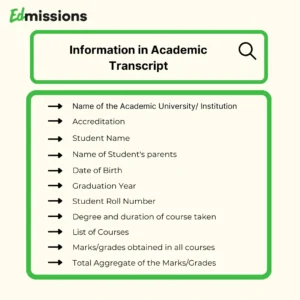Introduction
Malaysia as your study destination? good morals pays, so its important to avoid things that will land you into troubles. With its affordable education, multicultural society, and warm hospitality, it’s no wonder that more than 130,000 international students call Malaysia their academic home each year.
But while Malaysia offers a welcoming environment, studying abroad comes with its own set of do’s and don’ts — and let’s be real: it’s often the don’ts that get students into trouble.
In this post, we’ll explore 5 major things you should avoid as an international student in Malaysia, so you can stay safe, out of trouble, and make the most of your time abroad. Trust us, this is the kind of guide you’ll wish you had on Day 1!
1. Ignoring Malaysian Laws and Cultural Norms
Common Legal Mistakes International Students Make
Malaysia takes its laws seriously — and ignorance is not an excuse. Some students get in trouble for:
-
Drinking alcohol in public
-
Possessing drugs (even trace amounts) – this can lead to the death penalty
-
Driving without a valid license
-
Littering or public smoking in restricted areas
Remember, what might be normal back home could be illegal here.
Respecting Local Customs and Traditions
Malaysia is a multicultural country with Malay, Chinese, Indian, and Indigenous influences. While it’s a modern nation, respect for religion and traditions runs deep, especially Islam. So, avoid:
-
Public displays of affection (PDA)
-
Dressing inappropriately in conservative settings
-
Criticizing religious practices or mocking beliefs
It’s not just about avoiding trouble — it’s about showing respect to your host culture.
Cultural Taboos to Steer Clear Of
Don’t:
-
Point with your index finger (use your thumb instead)
-
Touch someone’s head (it’s considered sacred in some cultures)
-
Use your left hand when giving or receiving items
These may seem small but can mean a lot in local etiquette.
2. Overstaying Your Visa or Violating Immigration Rules
Types of Student Visas in Malaysia
Most international students require a Student Pass, which is processed by EMGS (Education Malaysia Global Services). Learn more here: https://educationmalaysia.gov.my
The Dangers of Overstaying or Working Illegally
Overstaying your visa can result in:
-
Hefty fines
-
Detention or deportation
-
Being blacklisted from returning
Also, working without permission is a no-go. International students can work part-time (up to 20 hours/week), but only during semester breaks and with university approval.
How to Stay Compliant and Update Your Visa Status
-
Apply for renewals at least 3 months before your visa expires
-
Keep digital and printed copies of your visa documents
-
Register with your university’s international student office for updates
3. Poor Financial Planning
Underestimating the Cost of Living in Malaysia
While Malaysia is affordable, that doesn’t mean it’s cheap if you’re careless. Average monthly expenses include:
-
Rent: RM 300–900
-
Food: RM 500+
-
Transport & utilities: RM 200+
Failing to plan can lead to stress, debt, or worse — dropping out.
Falling Into the Trap of Unnecessary Spending
It’s easy to get carried away with:
-
Shopping at malls like Pavilion or Mid Valley
-
Weekly bubble tea cravings
-
Uber rides instead of public transport
Those ringgit add up quickly. Budget wisely!
Setting a Realistic Student Budget
Use budgeting apps like Wallet, Spendee, or Mint. Include:
-
Tuition
-
Accommodation
-
Groceries
-
Entertainment
-
Emergency savings
Stick to it and adjust as needed.
4. Isolating Yourself or Avoiding Local Integration
The Risk of Only Socializing with People from Your Home Country
It’s natural to gravitate towards familiar faces. But relying only on your fellow countrymen can:
-
Limit your growth
-
Stall your language skills
-
Prevent you from understanding Malaysian culture
The Benefits of Cultural Exchange and Friendships
Interacting with locals helps you:
-
Learn Bahasa Malaysia
-
Understand unspoken social rules
-
Find job opportunities after graduation
How to Get Involved in Campus Life
Join student clubs, volunteer groups, or sports teams. Attend festivals, cultural nights, and even religious events if invited — it’s an experience!
5. Disregarding Academic Integrity
Understanding Plagiarism and Cheating in Malaysia
In Malaysia, academic misconduct is taken very seriously. Offenses include:
-
Copy-pasting content without citations
-
Buying assignments
-
Getting someone else to sit your exam
These can lead to suspension, expulsion, or visa revocation.
The Consequences of Academic Misconduct
Even first-time offenders can face:
-
Failing the course
-
A mark on your academic record
-
Being reported to immigration authorities
Developing Healthy Study Habits
-
Use plagiarism-check tools like Grammarly or Turnitin
-
Attend writing workshops
-
Manage your time using tools like Trello or Notion
Bonus Mistakes to Watch Out For
Not Getting Health Insurance
Medical care in Malaysia is affordable, but emergencies can cost you thousands. Always get student health insurance — some universities even include it in the tuition package.
Mismanaging Time Between Study and Part-Time Work
Working during study periods without approval is not allowed. Even with permission, balance is key. Don’t burn out chasing money at the expense of your GPA.
Using Public Transport Irresponsibly
Malaysia’s buses and trains are reliable, but stay alert:
-
Keep an eye on your bags
-
Avoid isolated areas at night
-
Use Grab (Malaysia’s version of Uber) for late-night travel
Resources for International Students in Malaysia
Official Government Portals
Universities’ International Student Offices
Every major university — like University of Malaya, Taylor’s University, and INTI — has a dedicated international student department. Use them!
Student Communities and Online Forums
-
Facebook groups (e.g. “International Students in Malaysia”)
-
Reddit (/r/malaysia)
-
WhatsApp community groups
Tips for Thriving as a Foreigner in Malaysia
Learn Basic Malay Phrases
Simple words like:
-
Terima kasih (Thank you)
-
Selamat pagi (Good morning)
-
Berapa harga? (How much?)
…go a long way.
Respect Local Etiquette in Public Spaces
-
Dress modestly in religious or rural areas
-
Remove shoes before entering homes or mosques
-
Say “Salam” or “Hi” when greeting someone — it’s a warm gesture
Stay Curious and Open-Minded
Every day is a chance to explore:
-
Try nasi lemak and roti canai
-
Visit Batu Caves or Langkawi
-
Join a Thaipusam, Hari Raya, or Chinese New Year celebration
Conclusion
Malaysia is one of the best places you could study abroad — warm people, top-notch universities, and incredible food. But to truly thrive here, it’s important to know the rules of the game.
Avoid the common traps: stay legal, budget smartly, integrate socially, and respect both academic and cultural norms. If you can manage that, your time in Malaysia will be unforgettable — for all the right reasons.
FAQs
1. Can international students in Malaysia work part-time?
Yes, but only during semester breaks, and you must apply for permission through your university and EMGS. Maximum 20 hours per week.
2. What’s the dress code like for students?
Dress modestly, especially at public universities and religious sites. Casual wear is fine in malls and most campuses, but avoid overly revealing outfits.
3. Are there scholarships for international students in Malaysia?
Absolutely! Look into the Malaysia International Scholarship (MIS) and university-specific scholarships such as those from Sunway University or UTAR.
4. Is Malaysia safe for foreign students?
Generally, yes. Malaysia is one of the safest countries in Southeast Asia. Just follow basic precautions like avoiding dark alleys at night or carrying large sums of cash.
5. Can I switch universities after arriving in Malaysia?
Yes, but it involves reapplying for a new Student Pass via EMGS. You’ll need both universities to coordinate the transfer. Always consult the international student office first.








